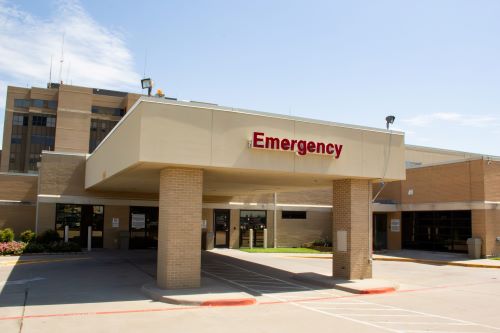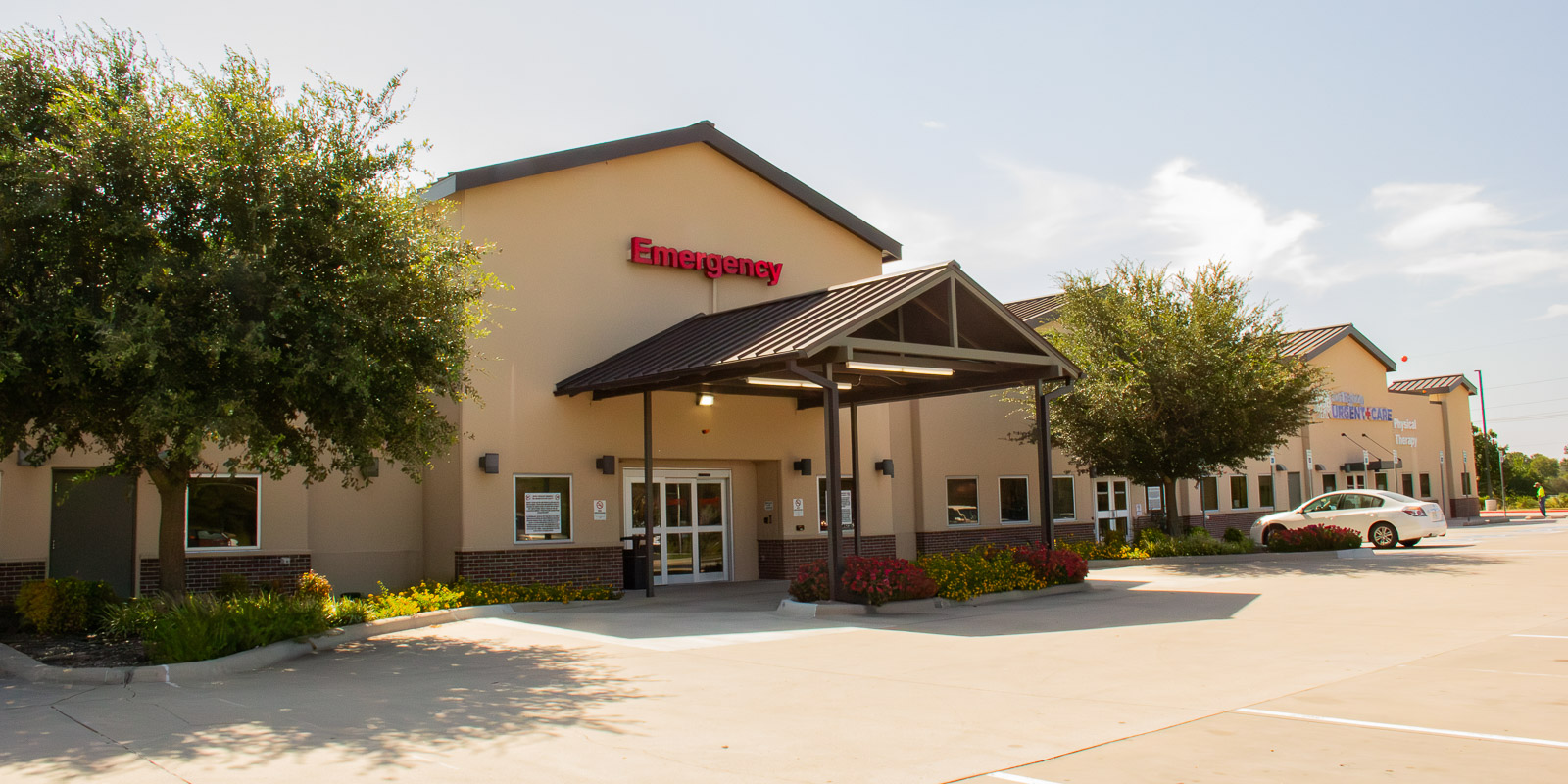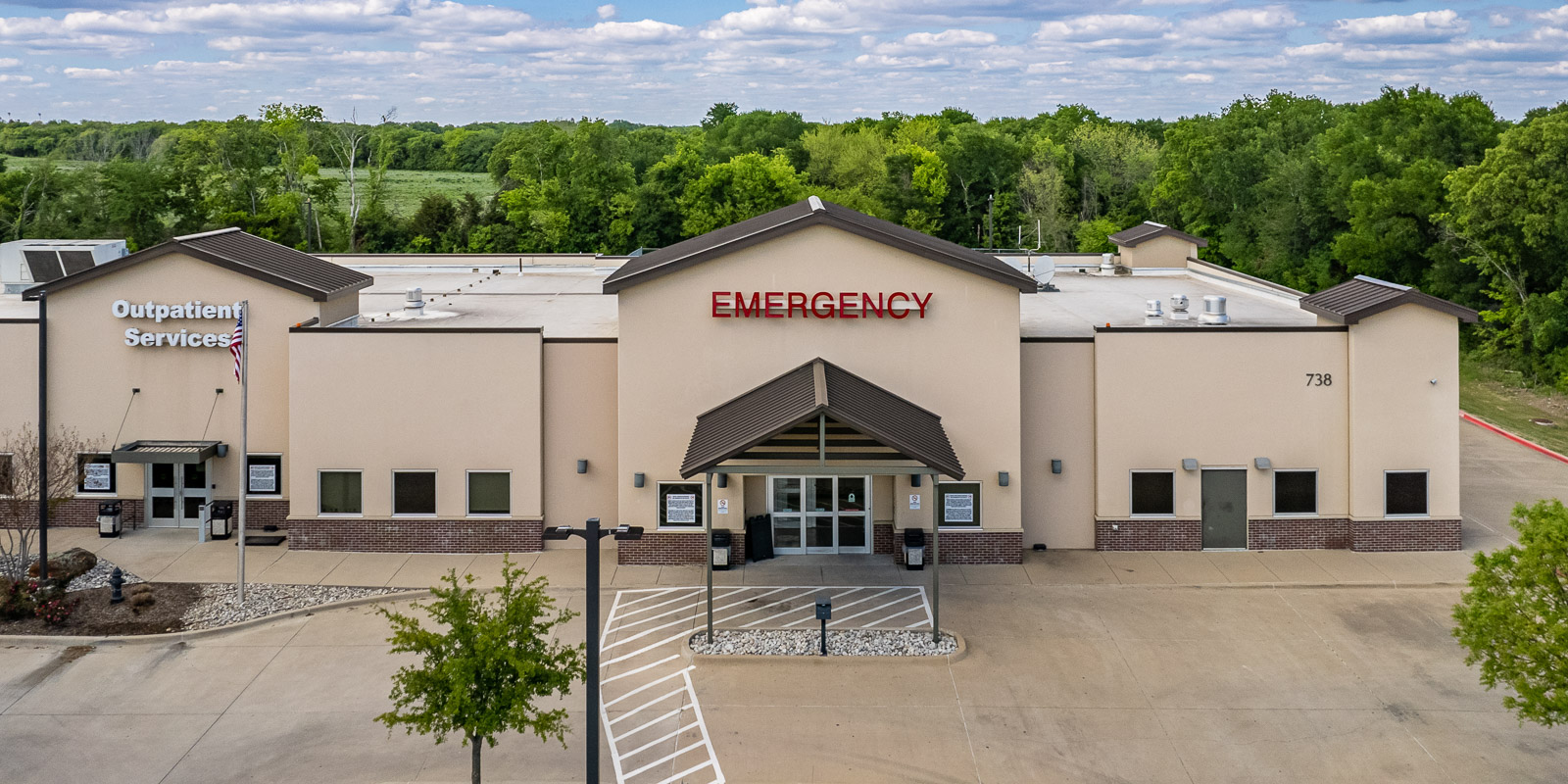About
Every second counts in emergencies. At Hunt Regional Healthcare, we understand the urgency of your healthcare needs. Our level III trauma facility is equipped with a highly skilled multidisciplinary trauma team that is available round-the-clock within our emergency department.
Our dedicated team of skilled healthcare professionals is available 24/7 to provide immediate, expert care for all your urgent medical needs
Emergency Room
Seek emergency care immediately if you or someone else experiences:
- Asthma attack or trouble breathing
- Broken bones
- Burns
- Chest pain or pressure
- Confusion
- Coughing or vomiting blood
- Heavy or uncontrollable bleeding
- Pregnancy-related urgent concerns
- Seizures
- Stomach pain or pressure
- Sudden, severe pain
- Suicidal thoughts
- Vision changes
*Any of these symptoms could be signs of a serious medical condition.
If you are going to the ER, it is a good idea to bring the following items with you:
- Insurance card
- Driver’s license or state-issued ID
- List of medications you are taking
The emergency room (ER) is a place where people go when they are experiencing a medical emergency. Emergency room treatment at Hunt Regional Healthcare is designed to provide patients with the care they need as quickly and efficiently as possible.
Once you have been triaged, you will be seen by a doctor or other qualified medical professional. The doctor will assess your condition and make a treatment plan. Treatment in the ER may include medication, surgery, or other procedures.
After you leave the ER, you will be discharged to home or to a follow-up appointment with your doctor. If you are discharged to home, you will be given instructions on how to care for yourself and when to seek further medical attention.
You may have one family member or visitor at a time in the emergency room. During certain exams or treatments, your visitors may need to stay in the waiting area. If that happens, we’ll update them on your care.
How the Emergency Room Works
Your health and well-being are our top priorities, and we are committed to delivering excellence in emergency medicine.
If a patient comes to the Hunt Regional ER suffering from symptoms related to one of the following conditions, they may have the shortest emergency room wait time and be treated first:
- Cardiac arrest
- Heart attack
- Respiratory distress
The reason for the short wait time is because these conditions require immediate medical care. Without urgency, these conditions can be life-threatening and potentially fatal. Patients experiencing related symptoms will always be seen first, even if they arrive after a patient who is experiencing less severe symptoms.
If a patient enters the ER and shows signs pointing to one of these conditions, they will be seen after any patients suffering from the most critical conditions already mentioned above:
- Altered mental status
- Severe fractures
- Shortness of breath
The reason these conditions fall under the second most urgent category is because related symptoms have the capacity to deteriorate and worsen quickly, leading to long-term health problems or injuries if not treated quickly. After all patients experiencing the most urgent symptoms have been seen, these patients are treated next.
Sometimes patients come to the ER with symptoms for non-life-threatening conditions and can therefore be classified as third most urgent. These conditions include:
- Abdominal pain
- Cuts requiring stitches
- Ankle and arm fractures
Symptoms related to these conditions often do not worsen over a short period of time, so patients can be seen after all critical and acute patients have been examined.
Sometimes, life-threatening symptoms or conditions occur, and you do not have time to drive to Hunt Regional’s ED. If this happens, call 9-1-1 immediately.
The following conditions may require calling 9-1-1:
Heart attack
Cardiac arrest
Unconsciousness
Respiratory distress
Head and neck injuries
Severe bleeding
Eye injuries
Be mindful that if you call 9-1-1 for a medical emergency, an ambulance will take the patient to the nearest emergency department. However, there is a cost associated with the use of an ambulance, so only use this method in the case of a serious, life-threatening situation. Otherwise, travel to one of Hunt Regional’s emergency departments for critical care.
Walk-in Care for Minor Conditions
Learn more about Hunt Regional Healthcare’s Urgent Care, a quicker, more affordable alternative to the emergency room for non-life-threatening health conditions. No appointment is needed.
Locations
Hunt Regional Medical Center Emergency Department
Hunt Regional Emergency Medical Center at Commerce
Hunt Regional Emergency Medical Center at Quinlan



